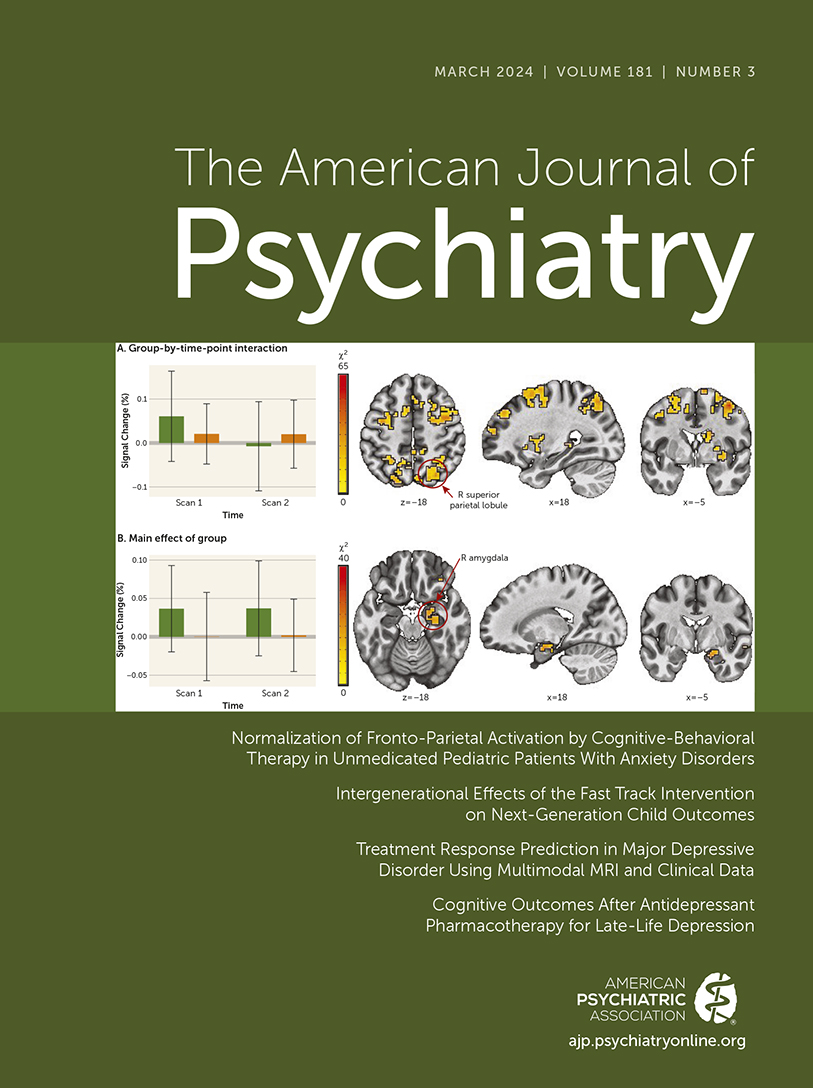Intergenerational Effects of the Fast Track Intervention on Next-Generation Child Outcomes: A Preregistered Randomized Clinical Trial
Abstract
Objective:
The authors sought to determine whether the Fast Track mental health intervention delivered to individuals in childhood decreased mental health problems and the need for health services among the children of these individuals.
Methods:
The authors examined whether Fast Track assignment in one generation of children (generation 2; G2) from grades 1 through 10 reduced parent-reported mental health problems and health services use in these children’s children (generation 3; G3) 18 years later relative to a control group. The Fast Track intervention blended parent behavior-management training, child social-cognitive skills tutoring, home visits, and classroom social-ecology changes across grades 1–10 to ameliorate emerging conduct problems among the G2 children. For this study, 1,057 G3 children of Fast Track participants (N=581 intervention group, N=476 control group) were evaluated.
Results:
G3 children of G2 parents who were randomized to the Fast Track intervention group used fewer general inpatient services and fewer inpatient or outpatient mental health services compared with G3 children of G2 parents randomized to the control group. Some of these effects were mediated: randomization to Fast Track predicted fewer internalizing problems and less use of corporal punishment among G2 adults at age 25, which subsequently predicted less general inpatient service use and outpatient mental health service use among the G3 children by the time the G2 parents were 34 years old. There were no significant differences between G3 children from these two groups on the use of other health services or on mental health measures.
Conclusions:
Fast Track was associated with lower use of general inpatient services and inpatient and outpatient mental health services intergenerationally, but effects on parent-reported mental health of the children were not apparent across generations. Investing in interventions for the mental health of children could reduce service use burdens across generations.
Access content
To read the fulltext, please use one of the options below to sign in or purchase access.- Personal login
- Institutional Login
- Sign in via OpenAthens
- Register for access
-
Please login/register if you wish to pair your device and check access availability.
Not a subscriber?
PsychiatryOnline subscription options offer access to the DSM-5 library, books, journals, CME, and patient resources. This all-in-one virtual library provides psychiatrists and mental health professionals with key resources for diagnosis, treatment, research, and professional development.
Need more help? PsychiatryOnline Customer Service may be reached by emailing [email protected] or by calling 800-368-5777 (in the U.S.) or 703-907-7322 (outside the U.S.).



